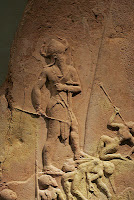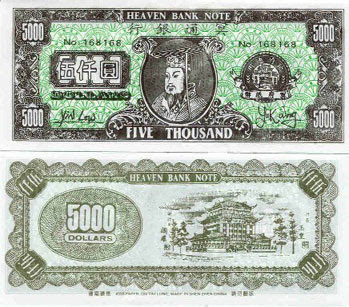The third book of Dee:Tertius.
The last of John Dee's books about his attempt to contact the angels is Tertius which I think formed the basis for the work known as The Heptarchia. My notes are very sparse, very poor...because they provide nothing but an outline.
Really, if you want to know what John Dee wrote, you must get as close to the original text as possible.
My notes are patently useless:
Tertius.
28th April 1582.
The third diary begins with Edward Kelly describing the angel Micheal.
John Dee says that the angel replied to 'my diverse complaints and requests' by saying through Kelly: 'The Lord shall consider you in the world and in the world to come' (and there appeared in the scry stone a chair all on fire (rather a common image, it seems to me).
John Dee is confused by this, for the angel is talking as if Dee and Kelly are equal. Dee asks: 'You mean us (Dee and Kelly) must be joined and as one mind, as if we were one man?' The angel tells Dee that this is so...
Next the angel admonishes Dee for not being quick enough in buying the goods (?) 'Take heed of punishment for your slackness' is what the angel actually says.
The goods are the lamine, and a ring. The lamine is a triangular breast plate inscribed with symbols, it was to be worn hidden under a scarf and its function was to protect Dee from malevolent influences. The other item was a ring, marked with the inscription PELE 'without this ring you shall do nothing!' The sigil of Dei Ameth, Seal of the truth of God, a total of seven tablets in all are to be fashioned.
Next comes a vision of angels and fire, maidens and balls, tablets and numbers, an instrument of conciliation.
April 29, 8:30 pm.
Micheal and Uriel:
Micheal says: 'et posuit illos in ministerium ejus quid desideratis?' which I assume is a question about where to place the tablets and objects?
Dee replies: 'wisdom and knowledge is necessary for us in the service of God's power and His glory' and the angel replies (my translation!) 'know God from his creations'...
The vision is of seven women.
This work is of wisdom says Micheal.
After Kelly and Dee have placed the seven tablets in place (the ring and breast-plate have not been made) Uriel tells them that there are forty-nine angels in charge of the earth, and of course by knowing their names and by correct invocations, these angels will aid you. The angel gives the forty-nine names (all beginning with B)
The angel Micheal asks Dee: 'What else, what else?'
And Dee replies: 'to make progress, and to increase power, to honor and to glory in God's truth'.
Next come visions of birds..
The text concludes with Dee asking about the lamine and the ring, saying that Kelly cannot engrave the objects. The angels tell them that a good man may be found to do the work, and when the objects are made, they will know how to use them.
The session finished at 4:30 AM.
--------------
Meanwhile...
John Dee's letter to Parliament.
I was in the chained library of Hereford cathedral a few days ago. The display in the glass cabinets was of bibles, the guide was quite enthusiastic about the King James bible circa 1611 -many people are- the language is praised and it has an aura of authority as it was translated by forty odd scholars from Latin, Greek and Hebrew..
I can't take the history away from the text, though.
At the moment the Reformation (something we were taught at school as have being a great movement towards rational, common sense and a freeing of the people from the tyranny of the church) was for many people rather than freedom- a hideous affair.
Far from freeing people from tyranny, the reformation swept away harmless methods of dealing with anxiety (Holy water, relics, liturgy) and replaced it with self criticism and the criticism of others.
It is said that the Catholic faith is experience centered whilst the reformation faiths are objective. An objective point of view, when taken to extremes, means that personal tragedy is immaterial at best or one's own fault- a punishment.
Success is worse than misery! it is a temptation...
Basically an extreme protestant attitude proclaims that there is nothing good this side of death.
Personally speaking, the King James bible represents something of the madness of King James (King of Scotland) who in 1597 wrote: "Daemonologie, In Forme of a Dialogie, Diuided into three Bookes".
The opening lines of which are:
"The fearefull aboundinge at this time in this countrie, of these detestable slaves of the Devil, the Witches or enchaunters, hath moved me (beloved reader) to dispatch in post, this following treatise of mine... to resolve the doubting... both that such assaults of Satan are most certainly practised, and that the instrument thereof merits most severely to be punished."
James became king of England (and Ireland) in 1603. A year latter (March 19th 1604) Parliament passed a tougher, stronger Witchcraft Act (not repealed until 1736) which would give rise to people like Mathew Hopkins and the incineration of perhaps as many as 40000 people between 1600 and 1680 in England.
In 1604 John Dee, now living once more in England, was an old man aged seventy seven. On the 5th June that year, Dee begged to be placed on trial so that he may clear his name of conjuring 'divils'. Three days latter he wrote again (the poem at the start of this blog) once more asking the king to have his name cleared publicly.
The king simply ignored him.

